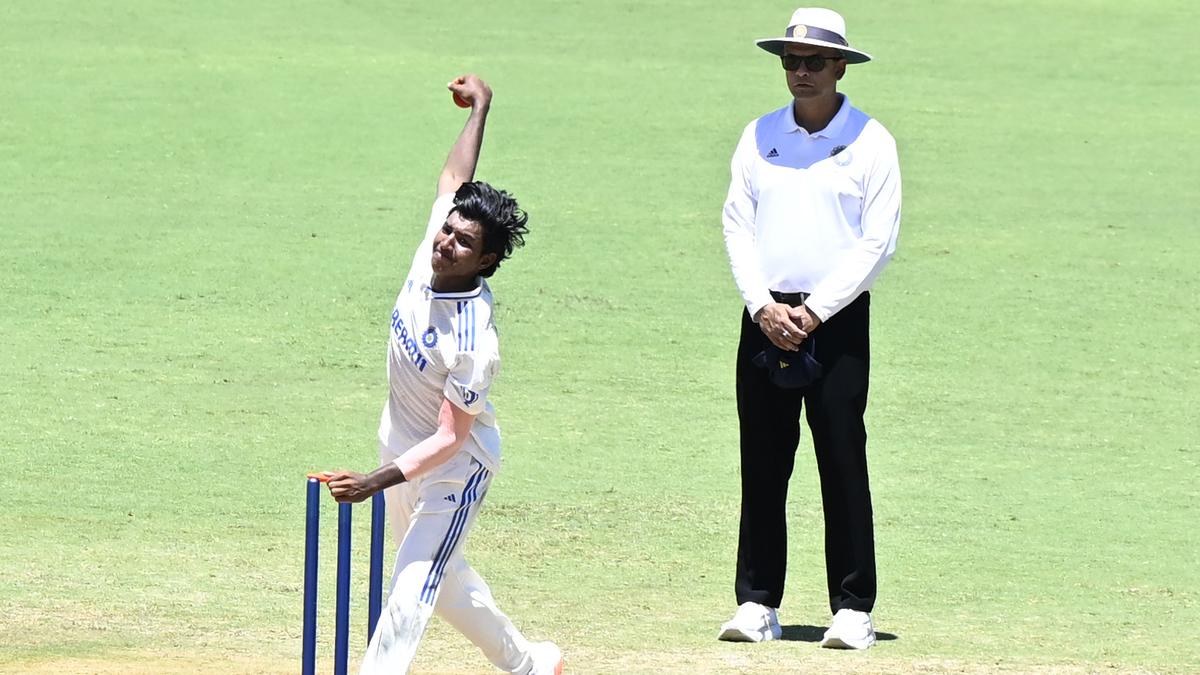
Director of the Indian Institute of Science Prof. Govindan Rangarajan, Robert C. Gunning *55 and R. Brandon Fradd ’83 Professor in Mathematics, Princeton University, Manjul Bhargava, and IIsc Council Chair Senapathy Kris Gopalakrishnan during the convocation at the Indian Institute of Science in Bengaluru on July 11, 2025.
| Photo Credit: SUDHAKARA JAIN
Noted mathematician Manjul Bhargava said that within a year or two, a few Artificial Intelligence (AI) models will be able to correctly solve any undergraduate science problems.
Addressing the Indian Institute of Science (IISc) convocation in Bengaluru on July 11, he said that currently AI remains notoriously bad at doing math and science.
“AI remains notoriously bad at doing math and science. You have all seen the memes and social media posts illustrating the kind of mathematical and scientific announcements that AI often produces with its nonsensical answers to scientific and mathematical questions, which are often wrapped in beautiful written and confident words,” he said.
However, he said that, in a couple of years, all this could be different as AI is getting better every day.
Better every day
“AI is getting better every day and having got the opportunity to test some of the new versions of language models that have been coming out recently, and which will come out publicly over the next couple of years, I can say with confidence that within a year or two, some AI’s will be able to correctly solve any undergraduate science problem. Give any trigonometry problems to some of the AI, they will be able to nail it, and correctly, unlike now,” Dr. Bhargava said.
He said that the emergence of such disruptive technologies raises a number of questions like what happens to teaching at institutions like IISc.
Future of teaching
“That brings us to a number of questions like what will happen to teaching at institutions like IISc when that happens. As AI does get better across subjects, we will have to constantly reassess, for example, what we should be teaching children in schools,” the mathematician said.
He added that with new exciting disruptive technologies will come new challenges and problems, which can only be solved in creative out-of-the-box and interdisciplinary ways.
“Other questions that will arise as AI gets better in various subjects are related to policy. What policies will need to be effected to ensure ethics in AI, and so on,” he added.
Medals to 84 students
During the convocation, 1,487 PhD and Master’s students, and 106 under-graduate students received their degrees. Medals were also conferred on 84 students for their academic excellence.
IISc. offers PhD and Integrated PhD programmes, several Master’s programmes [MTech, MTech (Res), MDes, MMgmt, MS, MSc(CS), MSc (LS), two undergraduate programmes, four-year Bachelor of Science (Research), and Bachelor of Technology (Mathematics and Computing) programme.
Posthumous honour
The Prof. B.G. Raghavendra Memorial Medal was awarded to Somwanish Nikhil Chottu posthumously. He passed away a few months ago under tragic circumstances. He was from the Department of Management Studies and had pursued the MMgmt programme.
Published – July 11, 2025 04:57 pm IST


